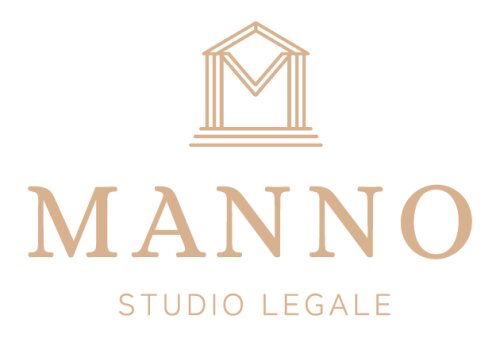Best Merger & Acquisition Lawyers in Lecce
Share your needs with us, get contacted by law firms.
Free. Takes 2 min.
List of the best lawyers in Lecce, Italy
About Merger & Acquisition Law in Lecce, Italy
Merger & Acquisition (M&A) law in Lecce, Italy, involves the legal framework and processes required for companies to combine, acquire, or transfer assets and entities. Lecce, situated in the Apulia region of Southern Italy, hosts a variety of businesses ranging from local enterprises to subsidiaries of larger multinational corporations. The M&A landscape here reflects Italian national legislation, with added consideration to local business practices, regional development priorities, and the specific industry dynamics prevalent in Lecce and its surrounding areas.
Why You May Need a Lawyer
Mergers and acquisitions are complex transactions with significant legal, tax, and regulatory implications. Engaging a qualified M&A lawyer in Lecce can be essential in situations such as:
- Negotiating the sale or purchase of a business
- Structuring joint ventures or strategic alliances
- Conducting legal due diligence before a transaction
- Drafting or reviewing agreements and contracts
- Complying with Italian and European Union competition and regulatory requirements
- Addressing labor and employment concerns in business transfers
- Navigating cross-border transactions
- Resolving disputes related to M&A transactions
Local Laws Overview
M&A activities in Lecce are governed by principles found in Italy’s national legal frameworks, notably the Italian Civil Code, corporate statutes, antitrust legislation, and securities regulations. The following are key aspects relevant to Lecce:
- Corporate Structures: The main company types involved in M&A are S.p.A. (joint-stock companies) and S.r.l. (limited liability companies), each with their own merger rules.
- Due Diligence: Italian law emphasizes the importance of thorough legal, financial, and operational checks prior to transactions.
- Antitrust and Regulatory Approval: Significant transactions may need clearance from the Italian Competition Authority (AGCM) or sector-specific regulators, especially if the parties meet certain turnover thresholds.
- Labor Considerations: Employee rights must be protected, including notification and consultation obligations with employee representatives or unions.
- Contractual Formalities: Notarial deeds may be required for transfers involving real estate or certain business branches.
- Taxation: Local counsel can advise on tax optimization and implications under Italian law, as complex structuring can affect capital gains, VAT, and transfer taxes.
- Cross-Border Deals: Specific regulations apply when foreign entities are involved or where assets are held abroad.
Frequently Asked Questions
What is the typical process of an M&A transaction in Lecce, Italy?
It usually starts with preliminary negotiations, a due diligence phase, signing of a preliminary contract, regulatory filings if needed, and closing the deal through final contracts-often before a notary for certain assets or share transfers.
Do I need regulatory approval for my M&A transaction?
Approval is required if the transaction meets specific criteria, particularly regarding market share or turnover, or if the company operates in regulated sectors like banking, insurance, or energy.
Is due diligence mandatory in Italian M&A deals?
While not legally mandated, due diligence is considered essential to identify legal and financial risks before completing a transaction.
How are employee rights protected during M&A in Lecce?
Italian law requires informing and consulting with employee representatives about significant business changes, and certain protections, such as maintaining employment contracts, are in place during business transfers.
What taxes should I be aware of in an M&A deal?
Potential taxes include capital gains, VAT (in asset sales), registration taxes, and local or regional levies. Tax treatment can depend heavily on deal structure.
Can foreign companies acquire Italian companies in Lecce?
Yes, subject to standard laws and any sector-specific or national security regulations. Particular attention must be paid to cross-border structuring and local compliance.
What role does a notary play in M&A transactions?
Notaries are required to formalize and register certain types of corporate acts, such as share transfers in S.r.l. companies or real estate transfers.
How long does it take to complete an M&A deal in Lecce?
Timelines vary, but simple deals may close in a few months, while complex transactions, especially those requiring regulatory clearance, can take six months or more.
What happens if a dispute arises after the transaction?
Contracts often include dispute resolution clauses. Italian courts are competent, but parties sometimes agree to arbitration, especially in cross-border deals.
Where can I find qualified M&A lawyers in Lecce?
You can start with the local bar association (Ordine degli Avvocati di Lecce), specialized law firms, or consult business associations with directories of legal professionals.
Additional Resources
- Ordine degli Avvocati di Lecce: The local bar association, with information on licensed attorneys specialized in corporate law.
- Camera di Commercio di Lecce: The local Chamber of Commerce, providing business registry information and regulatory support.
- Italian Competition Authority (AGCM): Handles antitrust notifications and approvals for large mergers.
- Ministero dello Sviluppo Economico: Offers information on national policies affecting business and M&A activity in Italy.
- Notaries of Italy (Consiglio Nazionale del Notariato): Directory and resources on legal formalities required in M&A transactions.
Next Steps
If you are considering a merger or acquisition in Lecce, Italy:
- Consult with an experienced M&A lawyer familiar with Italian and local Lecce business law.
- Prepare all relevant financial, business, and legal documents for initial discussions.
- Request a legal assessment of your planned transaction so potential risks are understood early.
- Ensure that due diligence is thorough and involves not only legal, but also financial, tax, and operational advisors.
- Contact the local Chamber of Commerce or Bar Association for further referrals if necessary.
- Discuss with your advisors the best structure for your transaction from a legal, tax, and operational perspective.
Lawzana helps you find the best lawyers and law firms in Lecce through a curated and pre-screened list of qualified legal professionals. Our platform offers rankings and detailed profiles of attorneys and law firms, allowing you to compare based on practice areas, including Merger & Acquisition, experience, and client feedback.
Each profile includes a description of the firm's areas of practice, client reviews, team members and partners, year of establishment, spoken languages, office locations, contact information, social media presence, and any published articles or resources. Most firms on our platform speak English and are experienced in both local and international legal matters.
Get a quote from top-rated law firms in Lecce, Italy — quickly, securely, and without unnecessary hassle.
Disclaimer:
The information provided on this page is for general informational purposes only and does not constitute legal advice. While we strive to ensure the accuracy and relevance of the content, legal information may change over time, and interpretations of the law can vary. You should always consult with a qualified legal professional for advice specific to your situation.
We disclaim all liability for actions taken or not taken based on the content of this page. If you believe any information is incorrect or outdated, please contact us, and we will review and update it where appropriate.









